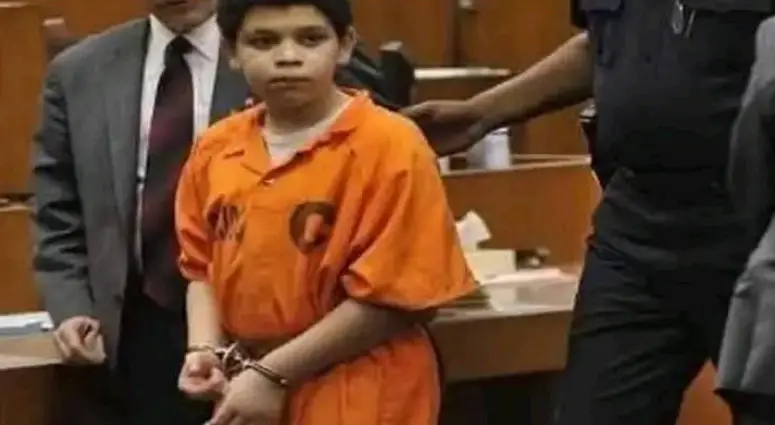She sits behind cold, unyielding metal bars — barely a teenager, with a future stolen before it began. Her only crime? Being in the wrong place at the wrong time, in a country where even children can be condemned to die behind prison walls.
The United States, often hailed as a beacon of liberty, harbors a disturbing secret: dozens of minors, some as young as 12, serve life sentences without any possibility of parole.

Childhood Lost Behind Bars
The U.S. is home to one of the world’s largest prison populations — and among them, at least 79 children under the age of 14 are locked away for life, according to research by Human Rights Watch and the Equal Justice Initiative.
These numbers have ignited a fierce debate about juvenile justice, human rights, and the ethical limits of punishment. Beneath the cold statistics lie stories of heartbreak and complexity.
Many of these young offenders come from backgrounds marred by poverty, domestic abuse, racial discrimination, and neglect. Some committed violent crimes; others were bystanders or accomplices in tragic events they neither planned nor fully understood.
A Case That Changed the Conversation
One case that captured national attention was that of Lionel Tate. At just 12 years old, he was convicted of killing a 6-year-old girl during what he described as a “wrestling game gone wrong.”
His sentence was later reduced, but his story sparked a nationwide reckoning: Should children ever be tried as adults?
Voices of Reason and Reform
“Sentencing a child to life in prison violates the most basic principles of justice and humanity,” says Juan Méndez, former UN Special Rapporteur on Torture. “Children are still developing — emotionally, mentally, and morally. To condemn them to die in prison is to deny the possibility of growth, redemption, and change.”
Still, many states argue that some crimes demand the harshest penalties — no matter the offender’s age. Florida, Michigan, and Pennsylvania lead in the number of minors serving life terms.
The U.S. Supreme Court has made progress. In 2012, it ruled mandatory life sentences for juveniles unconstitutional, and in 2016, mandated that this ruling be applied retroactively. Yet, hundreds of cases remain unreviewed, and many children sentenced before these rulings are still awaiting justice.
A Call for Change
Civil rights advocates push for restorative justice, sentence reviews, and reintegration programs — aiming to replace permanent punishment with opportunities for rehabilitation.
“Childhood should be a time for learning and redemption, not a life sentence,” says Bryan Stevenson, renowned civil rights attorney. “When we decide a child can never change, we abandon both science and compassion.”
A Nation’s Moral Reckoning
The plight of these 79 children forces America to face a harsh truth: the measure of a society’s humanity is not how it punishes its strongest, but how it treats its most vulnerable.
Conclusion
These young lives are more than legal cases — they are a reflection of a collective moral failure. When a justice system chooses permanent punishment over potential, it betrays the very idea of justice itself.
The stories of these children locked away in darkness challenge America to ask itself a painful question: If a society cannot forgive its children, can it truly call itself free?
Please SHARE this article with your family and friends on Facebook.
Bored Daddy
Love and Peace



